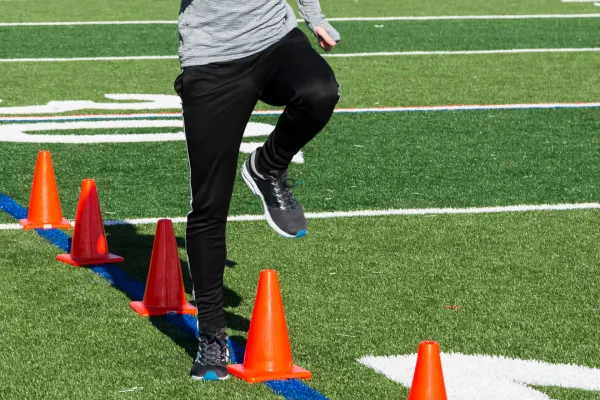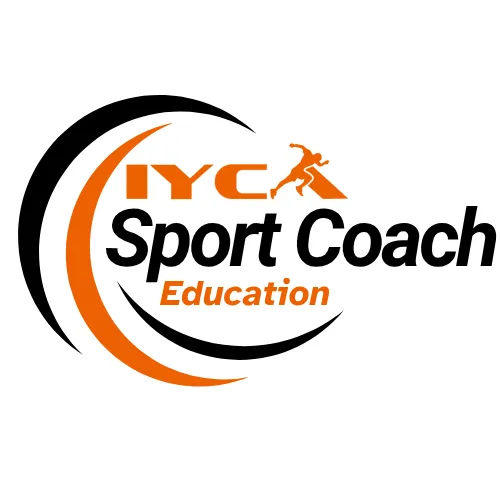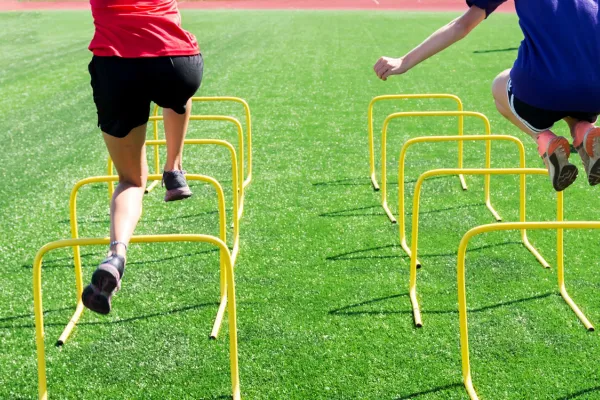
The Rhythm Every Coach Should Implement (But Most Don’t)
The Rhythm Every Coach Should Implement (But Most Don’t)
Why your growth as a coach needs structure, not just good intentions
Let’s be honest: coaches love to learn. We buy the books. We download the PDFs. We sign up for certifications. We sit in on webinars. We nod along to every inspiring keynote.
But how much of that learning actually gets implemented?
According to research, over 70% of learning from professional development is never applied. And even worse, only 10–15% of coaches who begin an online course or certification actually finish it.
Now imagine this: what if your athletes operated the same way most coaches do with their own development? They show up to the first week of practice full of enthusiasm, and then ghost the rest.
They attend training sessions but never actually apply what you teach. They love learning about the game, studying plays, and watching highlight reels, but they never step onto the field to actually play. You’d be concerned, right? You’d wonder where the follow-through went, why the potential never turned into performance.
And yet, this is exactly how many coaches approach their own growth–starting strong, but never finishing, and rarely implementing what they’ve learned.
Would we call that success?
Of course not.
But this is exactly how many coaches operate when it comes to their own growth. And we wonder why burnout, imposter syndrome, and plateauing results are so common in the coaching world.
I often say, “we can only coach to the level in which we have developed ourselves.” In other words, coaching is—and should be—a professional development profession.
Knowledge Without Rhythm is Just Noise
Here’s the truth for most coaches who land here: you probably don’t need another course right now. And yes—we know that may sound counterintuitive coming from an organization that offers top-tier, evidence-based education for professionals coaching kids under 18. But we’re not here to simply sell you another resource. We’re here to support real, lasting development. And the reality is, we don’t want you to invest in any course or certification if you’re not ready to apply what you learn. Growth doesn’t come from collecting content—it comes from implementing it.
What most coaches need, is an educational rhythm. A system that ensures you don’t just consume content, but integrate it, practice it, and grow from it.
We recommend this simple framework and rhythm that cycles every 90 days:
Quarterly – Deepen Your Knowledge with Intentional Education
One of the most effective ways to grow as a coach is to give your learning the same structure and intentionality that you give your athletes' development. That’s why we recommend focusing on one specific theme or area of growth every 90 days.
Whether it’s communication, speed development, culture-building, mental skills, the craft of coaching girls, cycle-awareness, injury prevention, leadership development, or even business development topics (if that applies to you) — the list goes on. When you zone in on one thing you want to improve upon, it naturally creates clarity and focus.
Why 90 days?
Because it’s long enough to dig deep and absorb meaningful insights, but short enough to maintain momentum and avoid overwhelm. A quarterly rhythm gives your learning a beginning, middle, and end. It creates mini-cycles of growth throughout the year, allowing you to master the basics, test the nuances, and build your confidence, one topic at a time.
In just one year, this structure alone allows you to deepen your knowledge in 3–4 critical areas of coaching, without the burnout or information overload that often comes from trying to do it all at once.
Even better, this model naturally aligns with the typical rhythm of a coaching year. You might choose a theme based on the season you’re in, if you are a sports coach:
Offseason: Focus on personal growth, leadership, or learning new strategies.
Preseason: Dive into team culture, communication, or movement prep.
In-Season: Lean into time management, game strategy, or athlete motivation.
Postseason: Reflect and explore areas like recovery, mental health, or athlete feedback systems.
This structure gives your education purpose and relevance, and ensures that you're not just consuming information, but developing as a professional. When you commit to intentional learning every 90 days, the cumulative growth over a year is not just incremental, it’s transformational.
Monthly – Set Intentions for Implementation
Learning is only powerful when it moves from theory to practice. That’s why every 30 days, you should pause, reflect, and decide exactly how you’ll implement what you’ve been learning. This is where growth becomes visible–not just in your understanding, but in your day-to-day coaching.
Think of each month as a mini-checkpoint within your 90-day theme. You’re not trying to apply everything at once—instead, you’re choosing one idea, one strategy, or one small shift to put into play.
What could this look like in practice?
Let’s say your 90-day focus is communication:
Month 1 Intention: Improve how you give feedback. You might try the "ask before you tell" method or increase your praise-to-correction ratio.
Month 2 Intention: Begin incorporating weekly one-on-one check-ins with athletes or short team debriefs.
Month 3 Intention: Use more visual cues or concise commands during fast-paced drills.
If your focus is speed development:
Month 1 Intention: Implement a new warm-up sequence that reinforces sprint mechanics.
Month 2 Intention: Introduce one speed-focused drill into every practice session.
Month 3 Intention: Educate athletes on acceleration vs. max velocity and track their progress.
These monthly intentions keep your development aligned with what you're learning, and more importantly, make it practical, visible, and immediately impactful for your athletes.
When should you set intentions?
We recommend building a ritual around this. Choose a consistent day to pause, reflect, and plan for the month ahead. For example:
First Sunday of each month – A calm time for many coaches before the week kicks off.
1st or 2nd of the month – Tie it to the calendar for consistency.
Day after your last game/practice of the week – Reflect while the session is still fresh.
Set aside 15–30 minutes to ask yourself:
What have I learned this past month that stands out?
What is one thing I can try or change this month based on that learning?
How will I know if it’s working?
Write your intention down. Better yet, share it with a mentor, colleague, or coaching group. When you declare it, you’re far more likely to follow through.
This monthly rhythm doesn’t require hours of extra time. It simply requires clarity, consistency, and courage—to try, to adjust, and to grow.
Weekly- Calibrate & Reflect
Growth as a coach doesn’t come from a single aha moment—it comes from consistent, small adjustments made week after week. That’s what this rhythm is all about.
Your weekly reflection is your opportunity to course-correct, realign, and refocus on what matters most—your impact. Without reflection, we risk slipping into autopilot. But with a few intentional minutes each week, we turn experiences into wisdom and effort into progress.
The Weekly Calibration Questions
At the end of each week—whether your practices went great or sideways—ask yourself:
What worked this week?
What strategies, approaches, or interactions felt effective?
Did athletes respond better to a certain drill or cue?
Was your energy, tone, or presence stronger on a particular day?What didn’t work?
Be honest, not harsh.
Did you try to implement something and it fell flat?
Was there a disconnect with athletes or a moment you’d do differently if given the chance?What do I want to try next?
This is where reflection turns into action.
Based on what you noticed, what’s one adjustment you can make next week?
It could be something you continue, change, or try for the first time.
When to Reflect?
Build this into your routine, just like you would a warm-up:
Friday afternoon after your last session.
Saturday morning with a cup of coffee.
Sunday evening before you set intentions for the next week.
Set a 10–15 minute timer. Jot your answers in a notebook or digital doc. Even a voice memo can work if you're on the go. What matters is not the method of documentation—it’s the consistency.
Pro Tip: Share your reflections
If you're part of a coaching community or mentoring group, consider sharing one insight from your weekly reflection. Growth multiplies when you reflect out loud. Others will learn from your experience, and you’ll stay more accountable to the growth you say you want.
Coaches expect their athletes to reflect, adjust, and get better. We must expect the same of ourselves. A simple weekly calibration isn’t just good practice—it’s how great coaches are made.
Check out the Deep Dive Discussion on this Source
Start Your Rhythm With Us
At the IYCA, we’ve built resources that don’t just give you content, but help you implement it. From certifications to workshops, we’re here to support coaches who are ready to do more than just learn–coaches who want to grow.
Whether you're coaching youth teams, high school athletes, or aspiring professionals, your development matters.
If you're leading other coaches and building out a staff or developing an education program for your coaches, let’s talk. We offer customized workshops and resources to help you train, support, and retain high-quality coaches who are ready to lead at every level.
If this blog sparked reflection or affirmed your mission—don’t stop here.
Get certified with the International Youth Coaching Association (IYCA) and gain the tools, science, and strategies to confidently support long-term athlete development.
Whether you’re working with beginners or elite youth athletes, IYCA certifications & programs are designed to elevate your impact.
Learn more and get certified today:
Certifications
Certified Athletic Development Specialists (CADS)
Certified Speed & Agility Specialist (CSAS)
Youth Nutrition Specialist (YNS)
Youth Athletic Assessment Specialist (YAAS)
High School Strength & Conditioning Specialist (HSSCS)
Because the best coaches never stop learning, and the athletes you serve deserve your best.
It’s time to raise the standard.
Coach Julie Hatfield-Still
About the Author:
Julie is an Author, CEO and Coach. She is the Brand Executive at the IYCA, the President & Founder of the Non-Profit Beyond The Game Alliance where they offer a full suite of workshops and support for teams, coaches and parents. In addition to her work as a business consultant and coach of coaches, leaders and entrepreneurs.
Julie is a Speed Development Specialist and Inner-Game Coach at the college, high school and youth levels.
Visit Julie’s Author Page








